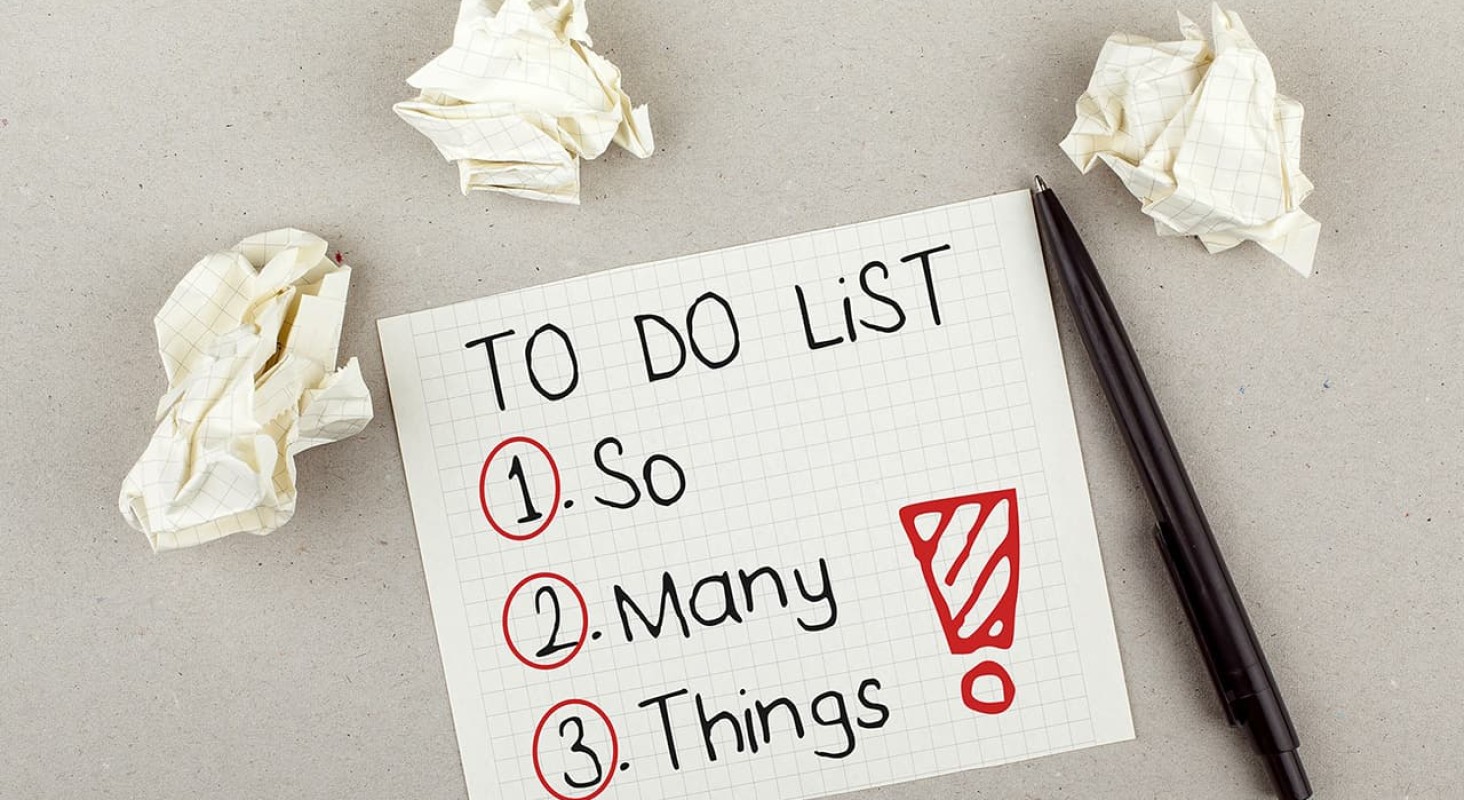In our very busy lives, it's easy to get distracted and find we are overwhelmed with conflicting priorities and demands on our time. Sometimes, this can come at a cost to our own mental wellbeing. We may have very good intentions to be productive at the start of the day but are often left deflated by the end when we have not achieved our goals. How many times have you said: 'I need more hours in a day'? But, in reality, do we just need to get better at time management?
Time can be managed effectively using "the 4 D's":
- Delete
- Do
- Delegate
- Defer
To understand how to embrace the 4 D's, let's take a look at them in more detail.
Tip 1: Is it necessary ('DELETE')
So, you have taken time to plan your day, week or even your month – but you are still on that hamster wheel and don't have enough time. This is where you have to be brutal and really look at your 'to do list' and decide 'are these tasks necessary?' Ask yourself and those you work for questions such as; 'does this job still serve a purpose?' 'Would it be missed if I didn't do it?' 'Is there a more efficient way to do things?' 'Can it be automated?' Often reluctance to change can be a barrier to our own progression. In our working lives, technology can sometimes make us feel surplus to requirements. But embracing technology and learning to delete those unnecessary tasks or automate repetitive ones, may not only aid personal development but provide new opportunities and/or changes in priorities.
Tip 2: Get the job done ('DO')
Procrastination is the enemy! We all have those jobs that hang around needing to be started but we put them off because it seems time consuming or difficult; that report we need to write or the staff appraisals to undertake. But they are still there niggling away at us. The Mark Twain quote is the go-to for time management philosophy; "If it's your job to eat a frog, it's best to do it first thing in the morning. And if it's your job to eat two frogs best to eat the biggest one first."
If you get the worst jobs over and done with the day will only get better and you won't be distracted from the other tasks in hand. Don't fall into the trap of avoiding the jobs that need your attention, however horrible or time consuming they may seem!
Tip 3: If you want a job done right, do it yourself! ('DELEGATE')
Or 'if you want something done, give it to a busy person' are our justifications for a workload which may be pushing us to breaking point. However, such statements could equally infer that we have not learnt the art of delegation. So, the statement should be rephrased to; 'if you want a job done right, delegate it'!
If you fall into the trap of doing everything yourself, you may either become a busy fool or very controlling. In the workplace, this could be perceived as negative and halt your own progression. Not learning how to trust and support a colleague to take on new responsibilities or new projects could result in an organisation losing talented individuals. Reflect on your work and ask yourself is it high quantity or high quality work that you want to be associated with? If it's the latter, then you need to learn to delegate.
Tip 4: Move the goal posts! ('DEFER')
Plans change and we must be flexible to the changing demands on our time. So, reflecting and adapting is essential, along with effective communication. Sometimes we have to say 'no' or change the deadlines to make things achievable – but without good communication, this can seem negative. When we are open about the demands on our time, the outcome can often be mutually beneficial. But, in order for this to be the case, we also need to listen and understand what is being asked of us. That way, we can be realistic about our ability to achieve what is required.
As well as the 4 D's, learning how to execute our fifth tip can also help result in a better work-life balance:
Tip 5: Plan, Prioritise, Organise
These three go hand in hand and if you don't adopt all three, your approach to time management is unlikely to change.
Action Plan: A 'To Do List' of what you need to achieve, what you want to achieve and the deadlines. It may seem like another thing to do in your already busy day, but good planning will give you achievable targets and a means of measuring your accomplishments. A little reminder of how productive you have been can often be a pick me up when the pressure is on. It also ensures the little tasks get done and not pushed to the bottom of the pile.
Prioritise: It is no good simply listing all the jobs and panicking about how to get them done. Instead decide what is most important and what's the best use of your time. Order them based on importance and time deadlines while being realistic and kind to yourself. We often underestimate how long we spend doing something and you don't have to do it all yourself.
Organise: Prepare with the right tools for the job and set realistic goals. Include things that are important to your wellbeing, for example, time for reflection and down time. Make sure when you start a task you have everything you need to complete it, if not this needs to be factored into your action plan. There is nothing more frustrating than not being able to complete something just because you hadn't factored in travel time, allowing for materials or getting answers to missing information. If you're not in a position to start working on a task, then maybe it doesn't deserve the priority you have placed on it!
In conclusion; when we place unrealistic expectations on ourselves and accept responsibilities without achievable timescales, we often end up trying to over-multi-task. When our attention is divided over a long period of time, we are often not working effectively and can soon become overwhelmed, stressed and demotivated. This is when we need to revisit our plan and realign our priorities and goals. Our plan should not be etched in stone, but should be a controlled, evolving timeline.
Good time management is essential and the right tools can help us manage our busy lives. It should make us more effective in completing valuable work in a timeframe that works. It should also open our eyes to the routines that have become embedded in our day even though they may no longer serve a purpose.
For more helpful tips on work-related advice, such as creating a healthy work-life balance, visit our News & Insights section.
Want to know more about M3 and how we will work with you to become an effective extension of your team? Get in touch today.





